This article describes the content of STM32MP1-ecosystem-v4.1.0 release of STM32MPU Embedded Software distribution and its associated ecosystem.
1. Delivery purpose and scope[edit source]
The STM32MP1-ecosystem-v4.1.0 release is dedicated to the STM32MP1 Series[1]. It is a major release, based on new community components version, listed in the embedded software chapter below.
This STM32MP1-ecosystem-v4.1.0 release aims at:
- providing a full ecosystem for the STM32MP1 Series[1] devices
- working efficiently with STM32 MPU boards, using one of the packages (Starter Package, Developer Package or Distribution Package) provided by STMicroelectronics: refer to Which Package better suits your needs for more information.
This ecosystem release consists of:
- STM32 MPU Embedded Software distribution
- STM32DDRFW-UTIL
- STM32PROGFW-UTIL
- STM32 referenced tools (more details are provided in the Referenced tools release notes chapter below):
- STM32CubeIDE
- STM32CubeMX
- STM32CubeProgrammer
- Keygen tool
- Signing tool
- hosted at the non-browsable URL http://packages.openstlinux.st.com
- enabled by default in the Starter Package
- providing regularly updated or additional packages
- Documentation
- the present user guide in Wiki format
- the documentation package (for more details refer to Reference documents chapter below)
- STM32MP1 boards support
- STM32MP15 Evaluation boards
- STM32MP15 Discovery kits
- STM32MP13 Discovery kits
- More details are provided in the supported hardware chapter below.
2. Intended audience[edit source]
The targeted audience is STM32 MPU customers and partners.
3. Licensing[edit source]
This software package is licensed under a SOFTWARE LICENSE AGREEMENT FOR ST MATERIALS (SLA). Customers should only use this package in compliance with the software license agreement (SLA).
4. Supported hardware[edit source]
This software delivery is compatible with the following boards:
| STM32MP13 boards | |||
|---|---|---|---|
| Boards | PCBs list | Main features | Ordering |
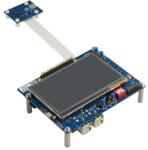 STM32MP135F-DK Discovery kit |
|
|
|
| STM32MP15 boards | |||
|---|---|---|---|
| Boards | PCBs list | Main features | Ordering |
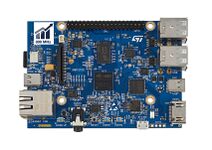 STM32MP157D-DK1 Discovery kit |
|
|
|
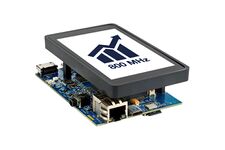 STM32MP157F-DK2 Discovery kit |
|
|
|
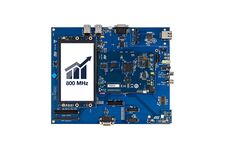 STM32MP157D-EV1 Evaluation board |
|
|
|
 STM32MP157F-EV1 Evaluation board |
|
|
|
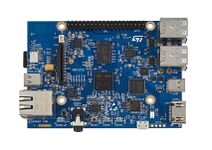 STM32MP157A-DK1 Discovery kit |
|
|
Out of production |
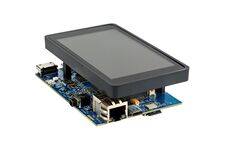 STM32MP157C-DK2 Discovery kit |
|
|
Out of production |
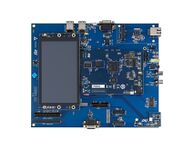 STM32MP157A-EV1 Evaluation board |
|
|
Out of production |
 STM32MP157C-EV1 Evaluation board |
|
|
Out of production |
5. Release content[edit source]
5.1. Embedded software[edit source]
| Embedded software | STM32MP13x lines |
STM32MP15x lines |
|---|---|---|
| OpenSTLinux (Arm® Cortex®-A7) | ||
| STM32CubeMP1 (Arm® Cortex®-M4) | ||
| Buildroot (Arm® Cortex®-A7) | ||
| STM32DDRFW-UTIL (Arm® Cortex®-A7) | ||
| STM32PROGFW-UTIL (Arm® Cortex®-A7) |
5.1.1. OpenSTLinux (Arm® Cortex®-A7)[edit source]
openstlinux-5.15-yocto-kirkstone-mp1-v22.11.23 is the new version delivered with the STM32MP1-ecosystem-v4.1.0 release. This software set consists of the following components:
- Build process
- OpenEmbedded v4.0.4 (Kirkstone) - Updated
- GCC version v11.3.0 - Updated
- Embedded software components
- Linux kernel v5.15-stm32mp-r2 (v5.15.67) - Updated
- TF-A v2.6-stm32mp-r2 - Updated
- U-Boot v2021.10-stm32mp-r2 - Updated
- OP-TEE 3.16.0-stm32mp-r2 - Updated
- OpenOCD version v0.11.0
- Applicative components
- Weston version v10.0.2 - Updated
- Wayland version 1.20.0
- GStreamer version v1.20.3 - Updated
- GCnano version v6.4.9 - Updated
5.1.1.1. Main changes[edit source]
Linux® kernel
- Real Time ready drivers (RT-Linux)
- SPI slave support
- ADC oversampling support
- SPI master driver with dual-qspi mode support
- DMA support for CRYP IP (Crypto performance improvement)
- STM32MP13x lines
 :
:
- New wake up sources
- USB OTG wake up via STM32G0
- Ethernet PHY Wakeup on LAN
- New wake up sources
TF-A
- Firmware update on NAND devices
- Improve FIP management on NAND devices
- Add GPIO regulators driver
- Use FCONF to manage the Chain of Trust
OP-TEE
- ADC driver implementation
- IRQ forwarding
- Update regulator IO management
- Hardware unique key (HUK) implementation:
- using secured OTP through BSEC driver mapping on STM32MP15
- through SAES on STM32MP13
OpenSTLinux layers
- Rebase on Yocto LTS Release 4.0.4 (Kirkstone)
- Add support of Firmware Update feature for NAND memory
5.1.1.2. Restrictions[edit source]
- If Firmware Update is not enabled, and the flashlayout partition is not needed anymore, but the storage mapping is hardcoded in U-Boot; either the flashlayout keeps the partitions for Firmware Update feature or U-Boot needs to be updated.
5.1.2. STM32CubeMP1 (Arm® Cortex®-M4)[edit source]
STM32CubeMP1 Package v1.6.0 version - same version as the one delivered for the STM32MP1-ecosystem-v4.0.0 release.
- Applicative components
- OpenAMP v2021.10.0
5.1.3. Buildroot (Arm® Cortex®-A7)[edit source]
Buildroot distribution based on ST Linux BSP from openstlinux-5.15-yocto-kirkstone-mp1-v22.11.23 is delivered with STM32MPU-ecosystem-v4.1.0 release with the tag openstlinux-5.15-buildroot-2022.02-mp1-v22.11.23.
5.1.4. STM32DDRFW-UTIL (Arm® Cortex®-A7)[edit source]
STM32DDRFW-UTIL-v1.0.0 version - same version as the one delivered for the STM32MP1-ecosystem-v4.0.0 release.
STM32DDRFW-UTIL provides utilities for DDR.
Features available in this version
- Functionalities are available in command-line and in STM32CubeMX DDR Tool
- Read/Write DDR registers and DDR info
- Launch DDR tests
5.1.5. STM32PROGFW-UTIL (Arm® Cortex®-A7)[edit source]
STM32PROGFW-UTIL-v1.0.2 version - Updated .
STM32PROGFW-UTIL provides multiple applications to manage the one-time programmable (OTP) memories.
Functionalities are available through 4 applications:
- STM32CubeProgrammer based application
- Standalone STM32CubeIDE based application
- 2 other applications for development purpose
- UART configuration for the Standalone application
- Run mode for STM32CubeProgrammer application
5.1.5.1. Main changes[edit source]
- Documentation update
- STM32MP15 Semihosting mode issue fixed
- STM32MP15 USB reconnection issue fixed
Features already available in previous version
- STM32CubeProgrammer based application (in Serial boot mode)
- OTP v2 structure
- STM32CubeProgrammer UART interface and USB DFU
- OTP Console based application (in Dev boot mode)
- OTP CLI implemented based on STM32CubeProgrammer OTP CLI with OTP v2 structure
- UART and STM32CubeIDE Semihosting interface
5.1.5.2. Restrictions[edit source]
Semihosting mode is not functional on Windows PC.
5.2. Tools[edit source]
5.2.1. STM32CubeProgrammer, Signing tool, Keygen[edit source]
STM32CubeProgrammer v2.12.0 version - Updated .
5.2.1.1. Main changes[edit source]
- SSP UI
- Facilitate the SSP management for STM32MP devices
- Extract the device product ID to select the correct HSM package
- Get HSM (Hardware Security Module) information
- Save HSM license as binary file
- Launch the SSP flow at any running partition
- SSP maturation improvements
- Fix USB connection issue for MP15 STM32PRGFW-UTIL flashing
Features already available in previous STM32CubeProgrammer version
- STM32CubeProg installer including STM32CubeProgrammer, Keygen and Signing tools.
- Flash programming of SD Card, eMMC, NAND, NOR images through USB and UART for STM32MP157C-EV1, STM32MP157A-EV1, STM32MP157A-DK1, STM32MP157C-DK2 boards.
- Private and public key generation.
- Image signatures.
- Flashlayout file format change.
- STM32MP1 fuse management (with console interface only).
- PMIC NVM management (with console interface only).
- SSP (secure secrets provisioning)
5.2.1.2. Restrictions[edit source]
Key generation is functional with STM32MP_KeyGen_CLI on Linux® only from Ubuntu 18.04 and upper versions.
5.2.2. STM32CubeMX[edit source]
STM32CubeMX-v6.7.0 version - Updated .
5.2.2.1. Main changes[edit source]
- GUI: Add possibilities to download some documents of selected MCU/Board
- Allow virtual HAL driver components to have conditions on peripheral HAL mode
Features already available in previous version
- Ubuntu 20.04 support
- I/O muxing and clock tree configuration
- STM32MP1 contexts management (A7 non-secure, A7 secure, M4)
- STM32CubeMP1 code generation
- Tuning of DDR settings
- Device tree code generation
- dtsi and header file inclusions
- pinctrl and clock generation
- System-on-chip device node positioning
- multi-core related configurations (ETZPC binding, resources manager binding, peripheral assignment).
- DMA config generation - DMA nodes
5.2.2.2. Restrictions[edit source]
When opening a previous project built with an older STM32CubeMX version, the migration does not take into account the user section part. This part needs to be updated manually according to the openstlinux-5.15-yocto-kirkstone-mp1-v22.11.23 manifest.
5.2.3. STM32CubeIDE[edit source]
STM32CubeIDE-v1.11.0 version - Updated .
5.2.3.1. Main changes[edit source]
- Redirection of semihosting on tcp port with openOCD
- Debug via weston user for executable using GTK library
- Redirection of semihosting on tcp port with openOCD for STM32PRGFW-UTIL (outside CubeIDE, via Netcat external tool)
Features already available in previous version
- Ubuntu 20.04 support
- Application and libraries userland Arm® Cortex®-A7 support based on OpenSTLinux Developer Package and Yocto SDK.
- Arm® Cortex®-M4 STM32CubeMP1 in "Production mode" and "Engineering mode"
- Arm® Cortex®-M4 Firmware compilation, loading and debugging
- PC Linux® with ethernet (recommended) or serial link
- PC Windows with ethernet or ethernet over USB link
- Arm® Cortex®-M4 Firmware installation directory configurable.
- OpenSTLinux Developer Package support with
- TF-A component project compilation with native dt selected or external dt (for example, generated from CubeMX)
- U-BOOT component project compilation with native dt selected or external dt (for example, generated from CubeMX)
- OP-TEE component project compilation with native dt selected or external dt (for example, generated from CubeMX)
- KERNEL component project compilation with native dt selected or external dt (for example, generated from CubeMX)
- KERNEL component project artefacts update on running target
- For more information refer to How to manage OpenSTLinux projects in STM32CubeIDE article
- Installation of Yocto SDK
- Installation of OpenSTLinux projects Sources
5.3. Miscellaneous[edit source]
Detailed features are available in the release notes of the different components that constitute this delivery:
Moreover, the software workarounds implemented to provide solutions to the STM32MPU device errata are listed in STM32MP15 ecosystem errata sheet and STM32MP13 ecosystem errata sheet.
6. Minor release updates[edit source]
A minor release of STM32PRGFW-UTIL (version 1.0.2) has been done a containing a major correction which corrected potential device bricking. More details can be found in STM32PRGFW-UTIL_release_note.
7. Reference documents[edit source]
7.1. STM32MP13 resources[edit source]
7.2. STM32MP15 resources[edit source]
8. How to download the software and start with this release?[edit source]
The list of embedded software packages available for download depends on the selected packages.
The table below provides the available board part numbers as well as information in order to:
- get started with one of the three available Packages (Starter, Developer or Distribution Package)
- get started with the board
- find the associated embedded software distributions
- download source code
- build a piece of embedded software.
| Board part number | Jump to |
|---|---|
| STM32MP157x-EV1 Evaluation board |
STM32MP15 Evaluation boards - getting started, including software download |
| STM32MP157x-DKx Discovery kit |
STM32MP15 Discovery kits - getting started, including software download |
| STM32MP135x-DK Discovery kit |
STM32MP13 Discovery kits - getting started, including software download |
9. STM32MPU Embedded Software distribution detailed release notes[edit source]
The table below lists the software packages available in the STM32MPU Embedded Software distributions, and provides the corresponding release notes.
The release notes give more information and details about the features and content of the packages.
They do not explain how to download the software. Refer to How to download the software and start with this release.
| Firmware | Release note | Version |
| OpenSTLinux Distribution | STM32 MPU OpenSTLinux release note - v4.1.0 | openstlinux-5.15-yocto-kirkstone-mp1-v22.11.23 |
| Buildroot Distribution | README.md | openstlinux-5.15-buildroot-2022.02-mp1-v22.11.23 |
| STM32Cube MPU Package | STM32CubeMP1 Package release note - v1.6.0 | STM32CubeMP1 Package v1.6.0 |
10. Referenced tools release notes[edit source]
The table below lists the available tools, and provides links to the corresponding release notes.
Each release note gives information on how to install and use the corresponding tool.
The set of tools that can be downloaded depends on the package that is used (double check Which Package better suits your needs article for more information on each package).
| Tools | Release notes | Host PC | Which Package may need the tool ? | |||
| Linux® version | Windows version | Starter Package | Developer Package | Distribution Package | ||
| STM32CubeIDE | STM32CubeIDE_release_note | 1.11.0 | 1.11.0 | ☐ | ☑ | ☐ |
| STM32CubeMX | STM32CubeMX release note | 6.7.0 | 6.7.0 | ☐ | ☑ | ☑ |
| STM32CubeProg | STM32CubeProgrammer release note | 2.12.0 | 2.12.0 | ☑ | ☐ | ☑ |
| Keygen | KeyGen release note | 2.12.0 | 2.12.0 | ☑ | ☑ | ☑ |
| Signing tool | Signing tool release note | 2.12.0 | 2.12.0 | ☑ | ☑ | ☑ |
| STM32DDRFW-UTIL | STM32DDRFW-UTIL release note | 1.0.0 | 1.0.0 | ☐ | ☐ | ☐ |
| STM32PRGFW-UTIL | STM32PRGFW-UTIL release note | 1.0.2 | 1.0.2 | ☐ | ☐ | ☐ |
11. References[edit source]
- ↑ Jump up to: 1.0 1.1 The STM32MP1 Series includes the STM32MP13x lines
 and the STM32MP15x lines
and the STM32MP15x lines 
- ↑ STM32MP13 microprocessor part numbers
- ↑ Jump up to: 3.0 3.1 3.2 3.3 3.4 3.5 3.6 3.7 STM32MP15 microprocessor part numbers